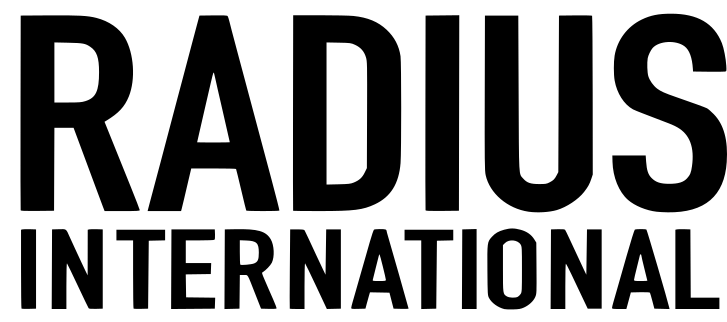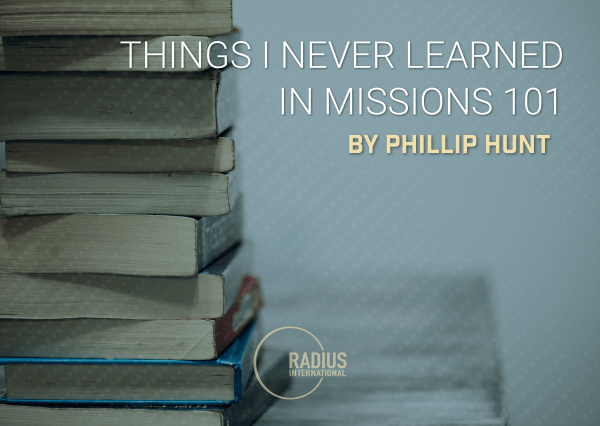As a young man, I thought that my missions classes in college had prepared me for serving Christ cross-culturally. I’ve often said to my wife over the past 30+years, someday I’ll write a book titled, “What They Never Taught Me In Missions 101.” Here are a few of them:
That it would be so difficult for both of us – it became difficult for me because it was so difficult for her. I headed to the field pumped and ready to conquer the continent. My wife and I arrived in Africa with an 8-month-old baby, Cherith, to shimmering heat waves dancing across the tarmac. The drive from the airport took us past piles of rotting and burning garbage, bouncing through potholes while avoiding the seemingly endless sea of people on foot, passing mud homes, witnessing the mass of people everywhere, and experiencing the distinctive smells of Mombasa, Kenya. The difference between the small-town suburbia where my wife grew up and the realities of Africa was challenging to navigate.
That the process of brokenness would hurt so much, so much of me to be squeezed out so that it would become “not I, but Christ.” Those hard spots are often removed with a surgeon’s scalpel. The potter has power over the clay and will reach into the lump to remove hard spots that, if left unattended, will mar the reflection of His Son Jesus Christ. Much of my energy to serve God was motivated by a mixture of genuine desire coupled with self-reliance and pride. How much I needed to be genuinely humble.
That God would use so many other people and their hurts and struggles as tools to shape me. Hurting people often hurt people. I would need to take those abuses and wrongs in a spirit of kindness and long-suffering, looking past the person who was delivering the wounds to the One who was allowing those bruises for my own sanctification and growth.
That my pride produced a fear of being misused, abused, and taken advantage of. We were often mistreated, lied to, and taken advantage of – targets of conmen because of being new. I so loved myself that I loathed the thought of being taken advantage of. Because I did not understand the people or culture well, I was often guilty of suspecting someone was trying to take advantage when they were not.
That I would need to die “a thousand deaths” to my reputation, dreams, goals, and desires, choosing for those to be consumed by a passion for the exaltation of Christ among the people I carry in my heart. We would need to turn our backs on security for our future and a comfortable retirement, and often be called upon to trust God for health concerns on behalf of one another and our children. That we would choose to be misunderstood without holding hurt, wronged without harboring bitterness, and choose the path of humility and shame like our Lord Jesus.
That loving people and seeking relationships with them would mean doing things that in my culture are unthinkable – helping grieving family members dress the corpse of their loved one and prepare it for burial. Sitting by the bedside of a beloved Christian brother or sister who was suffering in agony without the ability to organize the medical care to alleviate that suffering. Venturing into hard (and dangerous) to reach places in an attempt to find a way of infiltrating that place and those people with the gospel of Jesus. Eating things that I would never choose to eat, but doing so for the sake of those I seek to reach with the gospel.
Despite these challenges and unexpected lessons, I wouldn’t trade this journey for anything in the world. The joy of seeing someone understand the gospel for the first time, watching indigenous leaders rise up to shepherd their churches, and experiencing God’s faithfulness in seemingly impossible situations far outweighs every hardship. The privilege of being Christ’s ambassador in places where His name is not yet known brings a satisfaction that no comfortable Western career could match.
Yes, missionary life will break you, reshape you, and humble you in ways you never imagined—but this breaking is the pathway to true joy and eternal impact. If you’re considering this calling, know that while the cost is real, the reward is greater: seeing Christ formed in you and in those you serve. This sacred work of carrying light into darkness is worth every sacrifice, every tear, and every “death to self.” Don’t let fear of the unknown hold you back from this greatest adventure of faith, and the joy of obeying Jesus with your life.

Phillip Hunt
President of Central Africa Baptist University
Philip and Lori Hunt have been church-planting missionaries in Africa since 1992. In 1993, they helped start Faith Baptist Church of Riverside, Kitwe, Zambia, which has since planted several other churches in the area. In 2015, they partnered with a new team to start Kitwe Church, where Phil now serves as the Pastor for Preaching & Vision (kitwechurch.com). Phil’s goal is to spread the gospel to every village, town and city in Africa through healthy, reproducing local churches. He is passionate about training the next generation of God-called leaders who will plant, lead, and serve healthy reproducing churches in Africa. In 2006, Central Africa Baptist University was founded in Kitwe, Zambia (cabuniversity.com), and Phil has served as the President there since its inception. Philip & Lori also founded Faith Children’s Village Orphanage in 2003, which is now under Zambian leadership. Phil remains on the FCV Africa Board of Directors (faithinzambia.com). He has also served as the Africa Area Representative for IBMGlobal, an international missionary sending agency based in the USA (IBMGlobal.org). Phil and Lori have seven children: Cherith, Austin, Collin, Ashlyn, Carman, Tamaryn, and Corban.
 We train individuals, couples, and families who are committed to long-term, pioneer church planting among unreached language groups. RADIUS students acquire spiritual, relational, emotional, and moral maturity as well as the physical stamina that will enable them to survive the rigors of cross-cultural work and life.
We train individuals, couples, and families who are committed to long-term, pioneer church planting among unreached language groups. RADIUS students acquire spiritual, relational, emotional, and moral maturity as well as the physical stamina that will enable them to survive the rigors of cross-cultural work and life.
 Do you desire to take the Gospel to those who have never heard and see a healthy church established? Apply today for our immersive training program.
Do you desire to take the Gospel to those who have never heard and see a healthy church established? Apply today for our immersive training program. Are you interested in learning first-hand about RADIUS training and whether or not it is a good fit for you or your people? Join us for RADIUS Days to see campus, sit in on classes, and interact with current students, interns, and staff.
Are you interested in learning first-hand about RADIUS training and whether or not it is a good fit for you or your people? Join us for RADIUS Days to see campus, sit in on classes, and interact with current students, interns, and staff.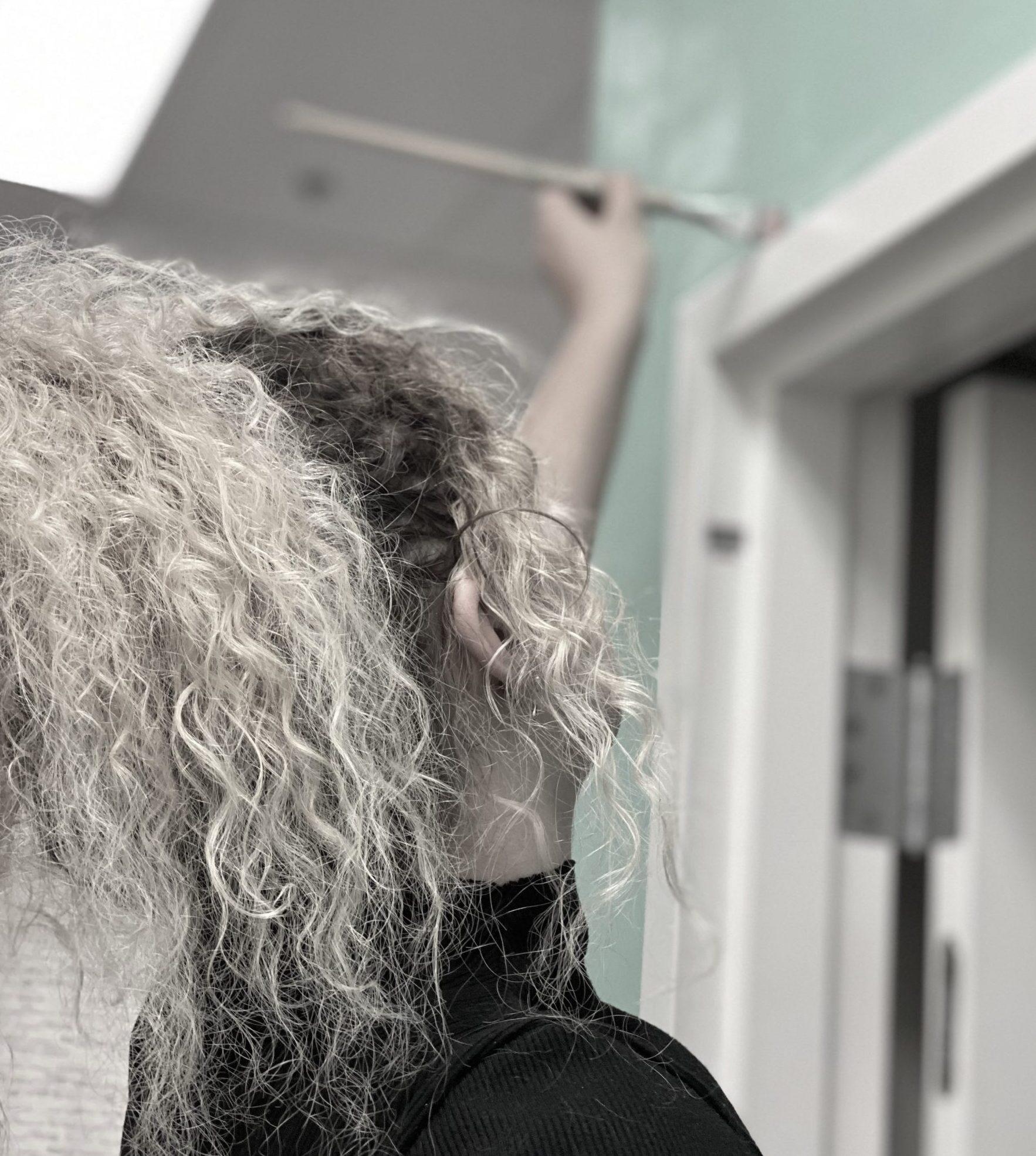 Come to one of our campuses in Mexico for a week-long, intensive program to serve via various campus work projects, learn more about The Great Commission, and get a taste of what our students experience during their year with us.
Come to one of our campuses in Mexico for a week-long, intensive program to serve via various campus work projects, learn more about The Great Commission, and get a taste of what our students experience during their year with us. Join us for The Radius Conference on October 17-18th, 2025 at RAK Evangelical Church in Ras AL Khaimah, UAE.
Join us for The Radius Conference on October 17-18th, 2025 at RAK Evangelical Church in Ras AL Khaimah, UAE.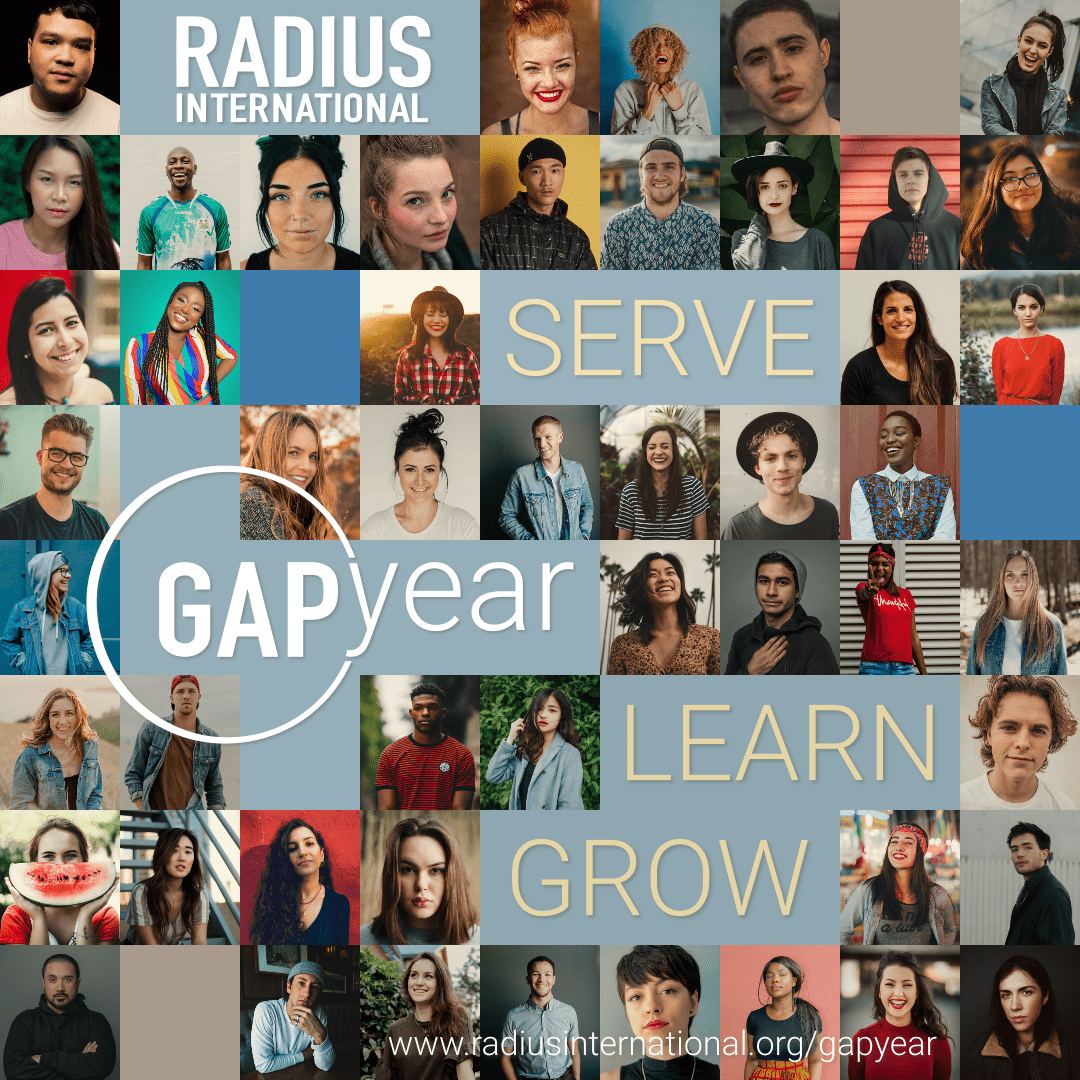 Spend 9 months in Mexico and play a vital role in The Great Commission through serving our staff and students while gaining valuable cross-cultural experience and opportunities to grow in your faith.
Spend 9 months in Mexico and play a vital role in The Great Commission through serving our staff and students while gaining valuable cross-cultural experience and opportunities to grow in your faith. Would you like to join us in our efforts to further the spread of the Gospel in still-unreached places? Support the work of RADIUS International by donating online.
Would you like to join us in our efforts to further the spread of the Gospel in still-unreached places? Support the work of RADIUS International by donating online. Are you or your church interested in giving towards a special missions opportunity? Learn more about some of our current projects.
Are you or your church interested in giving towards a special missions opportunity? Learn more about some of our current projects. Partner with some of our current students by paying their tuition/room & board.
Partner with some of our current students by paying their tuition/room & board. Reimburse RADIUS for on-campus lodging and/or meals.
Reimburse RADIUS for on-campus lodging and/or meals. Check out our blog for recent posts from our staff, alumni, and ministry partners.
Check out our blog for recent posts from our staff, alumni, and ministry partners. Purchase recommended books from our online bookstore at 10ofthose.com.
Purchase recommended books from our online bookstore at 10ofthose.com.
 Do you desire to take the Gospel to those who have never heard and see a healthy church established? Do you think RADIUS might be a good fit for you? Apply today!
Do you desire to take the Gospel to those who have never heard and see a healthy church established? Do you think RADIUS might be a good fit for you? Apply today!
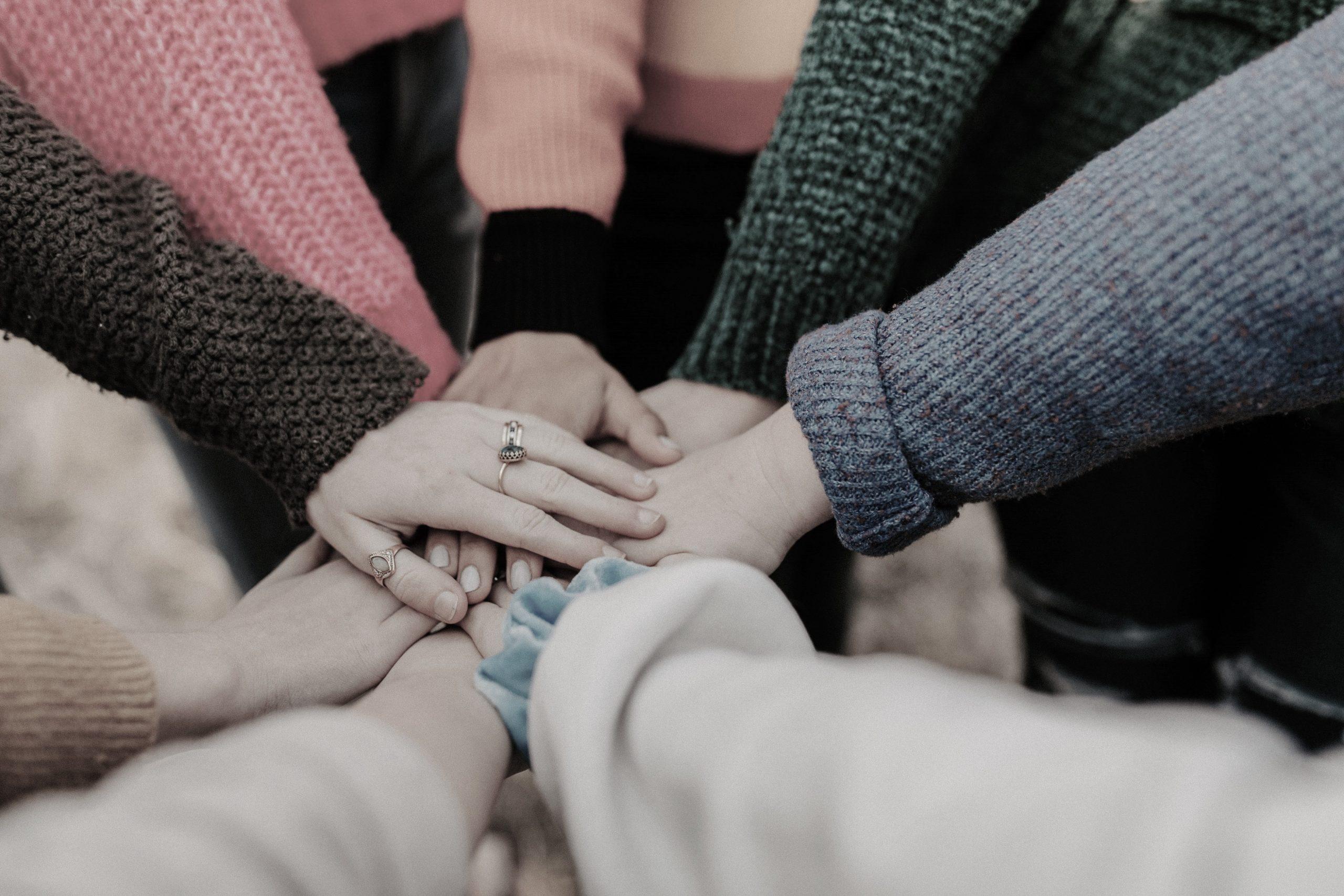 Interested in working with RADIUS? Learn more about open positions.
Interested in working with RADIUS? Learn more about open positions.
